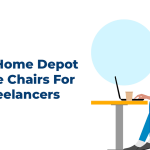Working from home is an appealing option for many people. Whether it’s because you want to be closer to your family, or because you have a disability that prevents you from working in an office setting, there are many good reasons why many self-employed people prefer to work from home and look for great Home Office Setup Ideas.
With the recent economic events – what with the Covid-19 and the lockdowns – we’d imagine that the idea of working from home becomes more appealing to more people.
However, the decision to work from home is one thing; setting up an office at home is another case entirely.
You might be bummed about where to begin: what should go first and when? This article helps you start a proper home office correctly.
Choose A Dedicated Space
A dedicated space for work is an important part of the home office setup. It’s also something that can be easily done, and it comes with a number of benefits.
For one thing, having your own space helps you stay focused on the tasks.
More importantly, it will help keep your mind on the job instead of being distracted by other things that may be going on around you.
It’s also important to have a place where you can go when you need some time alone or to just get away from people in general.
Working from home isn’t always easy because there are so many distractions—from people coming into your house unannounced (or invited) to having kids running around as if they own everything in sight.
Make Sure Your Home Office Space Is Comfortable
When you’re working from your home office, it’s important to make sure that your workspace is comfortable.
If you don’t have enough space, you may feel stressed and distracted.
You can’t go over any list of great Home Office Setup Ideas without considering how much light is available in the room and whether there are any noise sources (like an air conditioning unit).
If these issues cannot be resolved, it might be time for a change of scenery. If this is the case, here are some tips on finding a new home office location:
Find out if there are any co-working spaces nearby. Many big cities have them—you can find one by googling “co-working spaces in [your city name]”.
It’s usually pretty easy to get started; just sign up at the front desk with some ID and proof that you live within walking distance of their location (or ride/drive).
The best part? Co-working spaces usually offer great amenities like free Wi-Fi or weekly happy hour gatherings where everyone gets together after work to socialize over drinks and snacks.
In addition to providing these benefits for freelancers like yourself who want somewhere fun but productive where they can meet people who share similar interests.
Most importantly, co-working provides a space where you can feel most productive while working.
Choose The Right Desk And Chair
Generally, it’s best to choose a desk that is large enough to hold all your work supplies but not so big that it takes over the room.
It should also have a place for files and documents. You don’t want to waste time looking for something you need, so ensure there’s a spot where you can keep them organized.
Furthermore, ensure the desk is sturdy and stable, so it doesn’t wobble or shake while you’re working.
Many people often don’t consider comfort when picking out a table.
Select a desk with plenty of legroom so that when you sit down at night after work, it doesn’t feel like being in an airplane seat (unless you like that).
Lastly, find an area with enough light for writing or computer work; don’t set up shop in a dimly lit corner.
Make Sure Your Desk Is Ergonomically Arranged
As a freelancer, you will spend most of your day at work. That means you want to ensure you are as comfortable as possible while working.
The following are some things to keep in mind when setting up your desk:
- Sit in an ergonomically correct chair that is comfortable, supportive and adjustable. Adjust the height so that your feet are flat on the floor with legs uncrossed or crossed at the ankles (not knees). Adjust backrest for support for lower and upper back only, not neck or head. Support arms should be resting comfortably on armrests with elbows bent 90 degrees or less (if possible).
- Keep computer screen 16-24 inches from eyes; adjust height so that screen lines up directly in front of eyes without moving head forward or backward (this will help prevent neck pain from staring at computer all day long). If using dual monitors, place them evenly across from each other so there is equal visual distance between them both horizontally and vertically.
Limit Distractions such as tv, phones, or other noises to help you stay focused on work.
To keep your home office space distraction-free, you’ll want to cover up any potential distractions.
Many people like using headphones at their desks to block out unwanted noises and help them stay focused. If you’re looking for something more natural, try a white noise machine or a fan instead.
If you’re finding it difficult to focus due to the sound of people talking in the background, pen and paper is another great option for getting ideas out of your head and down on paper.
Consider An Outdoor Office
It might sound a bit weird, but trust us on this: consider an outdoor office. It’s such a nice idea that could have your productivity levels off the roof.
If you’re feeling stuck or blocked, having an outdoor space to use for your home office will help you get out of a rut. You can take some time outside during the day to clear your mind, and then come back inside when it’s time for work.
Conclusion
If you’re looking for excellent Home Office Setup Ideas to spruce up your work from home, freelance journey, the ideas discussed above are a great place to start. You can use them as inspiration for your own space or simply use them as a checklist so that you don’t forget anything important when setting up shop at home.






1 Comment
Can you be more specific about the content of your article? After reading it, I still have some doubts. Hope you can help me.